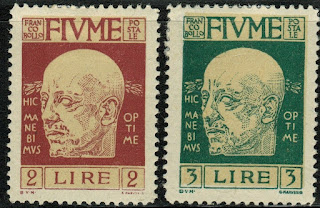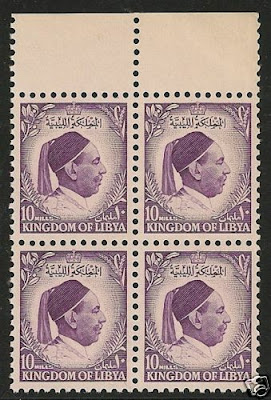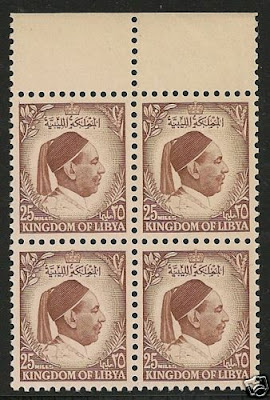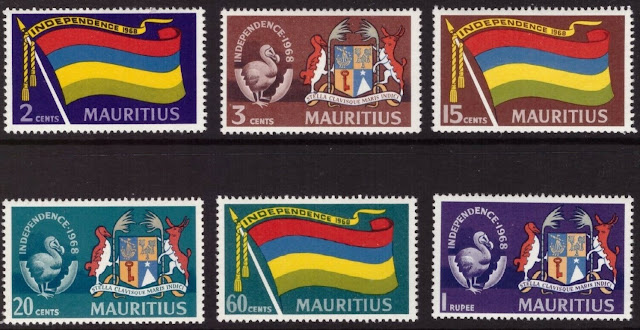1863 Born: Gabriele D'Annunzio, Italian soldier, journalist, poet, and playwright (d. 1938)
General Gabriele D'Annunzio, Prince of Montenevoso, Duke of Gallese (12 March 1863 – 1 March 1938), sometimes spelled d'Annunzio, was an Italian poet, journalist, playwright and soldier during World War I. He occupied a prominent place in Italian literature from 1889 to 1910 and later political life from 1914 to 1924. He was often referred to under the epithets Il Vate ("the Poet") or Il Profeta ("the Prophet").
D'Annunzio was associated with the Decadent movement in his literary works, which interplayed closely with French Symbolism and British Aestheticism. Such works represented a turn against the naturalism of the preceding romantics and was both sensuous and mystical. He came under the influence of Friedrich Nietzsche which would find outlets in his literary and later political contributions. His affairs with several women, including Eleonora Duse and Luisa Casati, received public attention.
During the First World War, perception of D'Annunzio in Italy transformed from literary figure into a national war hero. He was associated with the elite Arditi storm troops of the Italian Army and took part in actions such as the Flight over Vienna. As part of an Italian nationalist reaction against the Paris Peace Conference, he set up the short-lived Italian Regency of Carnaro in Fiume with himself as Duce. The constitution made "music" the fundamental principle of the state and was corporatist in nature. Though D'Annunzio never declared himself a fascist, he has been described as the forerunner of Italian fascism as his ideas and aesthetics influenced it and the style of Benito Mussolini.
Stamps issued in Fiume depicting Gabriele D'Annunzio
1889 Born: Idris of Libya
Idris (El Sayyid Prince Muhammad Idris bin Muhammad al-Mahdi as-Senussi; 12 March 1889 – 25 May 1983) was a Libyan political and religious leader who served as the Emir of Cyrenaica and then as the King of United Kingdom of Libya from 1951 to 1969. He was the chief of the Senussi Muslim order.
Idris was born into the Senussi Order. When his cousin, Ahmed Sharif as-Senussi, abdicated as leader of the Order, Idris took his position. The Senussi campaign was taking place, with the British and Italians fighting the Order. Idris put an end to the hostilities and, through the Modus vivendi of Acroma, abandoned Ottoman protection. Between 1919 and 1920, Italy recognized Senussi control over most of Cyrenaica in exchange for the recognition of Italian sovereignty by Idris. Idris then led his Order in an unsuccessful attempt to conquer the eastern part of the Tripolitanian Republic.
Following the Second World War, the United Nations General Assembly called for Libya to be granted independence. It established the United Kingdom of Libya through the unification of Cyrenaica, Tripolitania and Fezzan, appointing Idris to rule it as King. Wielding significant political influence in the impoverished country, he banned political parties and in 1963 replaced Libya's federal system with a unitary state. He established links to the Western powers, allowing the United Kingdom and United States to open military bases in the country in return for economic aid. After oil was discovered in Libya in 1959, he oversaw the emergence of a growing oil industry that rapidly aided economic growth. Idris' regime was weakened by growing Arab nationalist and Arab socialist sentiment in Libya as well as rising frustration at the country's high levels of corruption and close links with Western nations. While in Turkey for medical treatment, Idris was deposed in a 1969 coup d'état by army officers led by Muammar Gaddafi.
Libyan stamps depicting Idris
Anschluss refers to the annexation of Austria into Nazi Germany on 12 March 1938. The word's German spelling, until the German orthography reform of 1996, was Anschluß and it was also known as the Anschluss Österreichs
Prior to the Anschluss, there had been strong support from people of all backgrounds – not just Nazis – in both Austria and Germany for a union of the two countries. The desire for a union formed an integral part of the Nazi "Heim ins Reich" movement to bring ethnic Germans outside Nazi Germany into Greater Germany. Earlier, Nazi Germany had provided support for the Austrian National Socialist Party (Austrian Nazi Party) in its bid to seize power from Austria's Fatherland Front government.
On the morning of 12 March, 1938, the 8th Army of the German Wehrmacht crossed the border into Austria. The troops were greeted by cheering Austrians with Nazi salutes, Nazi flags, and flowers. For the Wehrmacht, the invasion was the first big test of its machinery. Although the invading forces were badly organized and coordination among the units was poor, it mattered little because the Austrian government had ordered the Austrian Bundesheer not to resist.
That afternoon, Hitler, riding in a car, crossed the border at his birthplace, Braunau am Inn, with a 4,000 man bodyguard. In the evening, he arrived at Linz and was given an enthusiastic welcome. The enthusiasm displayed toward Hitler and the Germans surprised both Nazis and non-Nazis, as most people had believed that a majority of Austrians opposed Anschluss. Many Germans from both Austria and Germany welcomed the Anschluss as they saw it as completing the complex and long overdue German unification of all Germans united into one state.[54] Hitler had originally intended to leave Austria as a puppet state with Seyss-Inquart as head of a pro-Nazi government. However, the overwhelming reception caused him to change course and absorb Austria into the Reich. On 13 March Seyss-Inquart announced the revocation of Article 88 of the Treaty of Saint-Germain, which prohibited the unification of Austria and Germany, and approved the replacement of the Austrian states with Reichsgaue. The seizure of Austria demonstrated once again Hitler's aggressive territorial ambitions, and, once again, the failure of the British and the French to take action against him for violating the Versailles Treaty. Their lack of will emboldened him toward further aggression.
Hitler's journey through Austria became a triumphal tour that climaxed in Vienna on 15 March 1938, when around 200,000 cheering German Austrians gathered around the Heldenplatz (Square of Heroes) to hear Hitler say that "The oldest eastern province of the German people shall be, from this point on, the newest bastion of the German Reich"
Stamp and postcard issued to commemorate the Anschluss
Independence stamps issued by Mauritius





